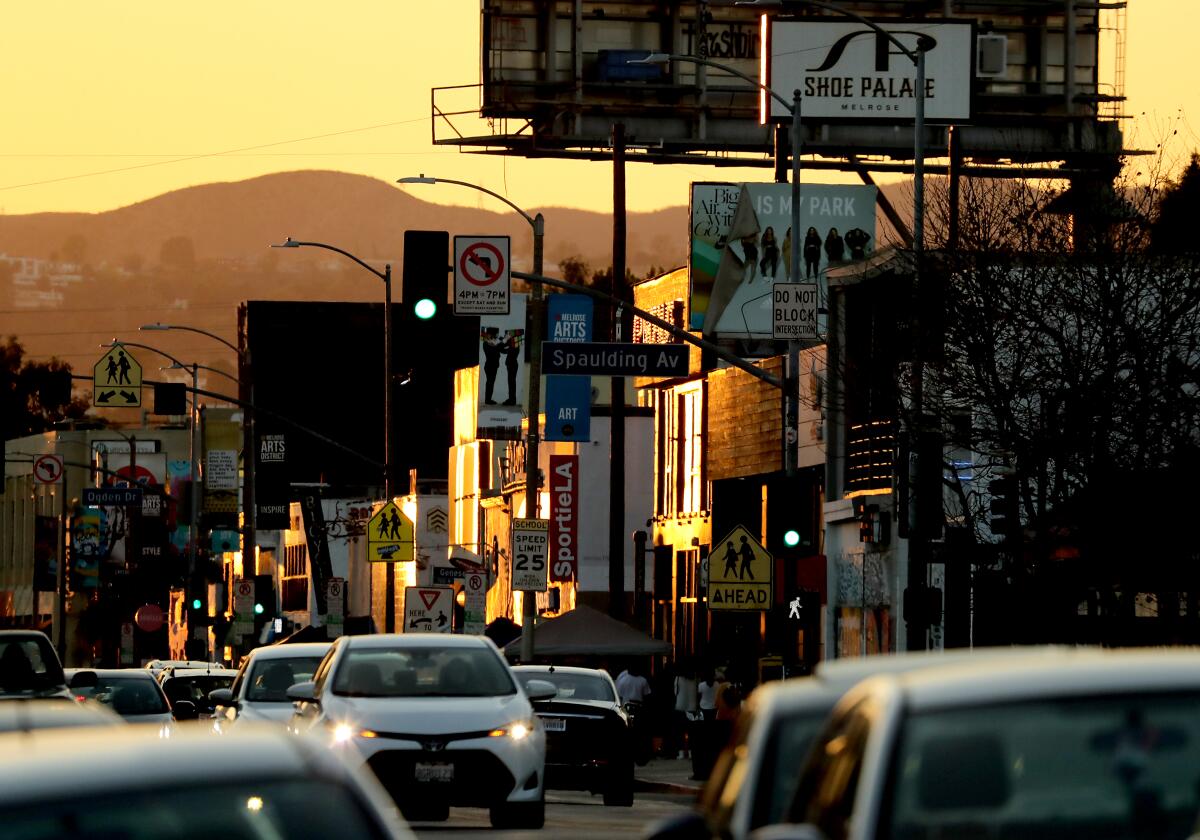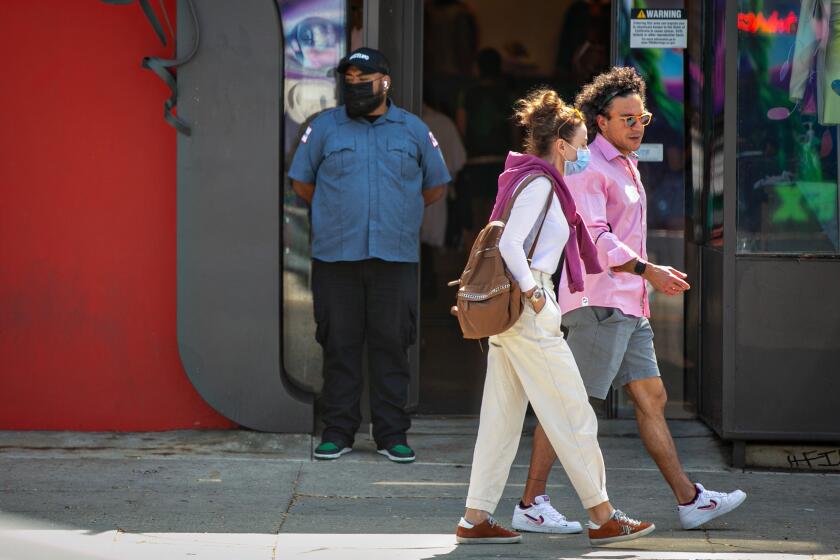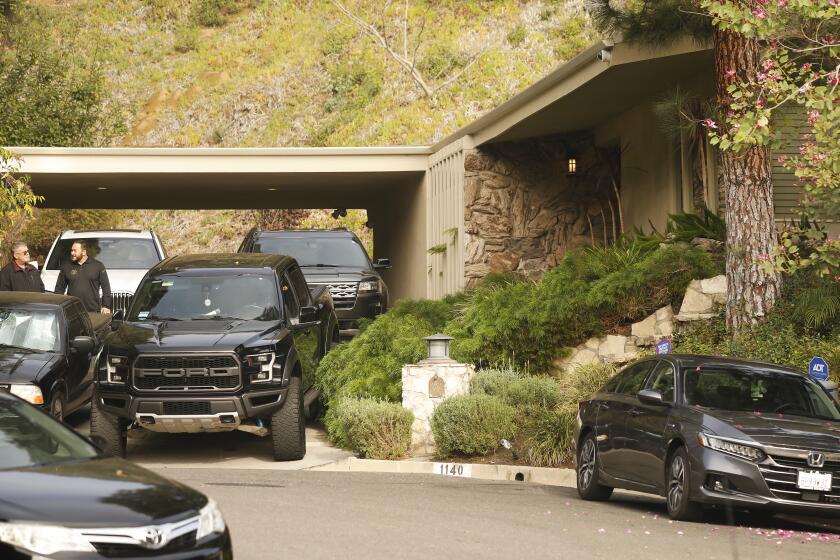Melrose Avenue neighborhood group to install license plate readers over crime worries

- Share via
Spurred by a series of robberies, shootings and other crimes in the Melrose Avenue area in recent months, a neighborhood group has raised $30,000 for license plate readers that will be installed beginning this week.
Melrose Action, a group that tracks crimes and breaking news in the busy shopping corridor and surrounding neighborhoods between La Cienega Boulevard and La Brea Avenue, spearheaded the fundraiser, which launched in August.
City Councilman Paul Koretz, who represents the area, donated $10,000 from his discretionary accounts to the project.
Peter Nichols, a Melrose Action co-founder, said he has been disturbed by the recent crimes in the area.
A string of armed robberies in a popular shopping district highlights a rise this year in the number of robberies involving guns.
“We went through a homicide cycle. Then we went through an armed robbery cycle that lasted for several months,” Nichols said. “Now the latest is the smash-and-grabs.”
As of Nov. 27, total violent and property crimes in the LAPD’s Wilshire Division, which includes the Melrose area, were down 12.4% year to date from 2019 and up 2% from 2020, according to police statistics. Property crimes, including burglaries and vehicle thefts, were down 17% from 2019 and up less than 1% from 2020, although vehicle thefts have surged 70% over numbers seen in 2019 and 25% over 2020 figures.
Violent crimes were up 12.3% from 2019 and up 6.8% from 2020.
The division saw 13 homicides as of Nov. 27, up from five in 2020 and one in 2019.
Nichols said he and other members of Melrose Action wanted to find a method of helping investigators that went beyond doorbell and security cameras and witness statements.
“I give everybody credit that we’re all thinking that our cameras installed on our houses, in front of our houses or at our doors are going to help catch a criminal and that the police want this stuff,” Nichols said, “until we research and simply realize they’re just being inundated.
“And then that leads to disappointment from the residential reporter or the merchant who said someone’s harassing them and they’ve got pictures. Everyone wants a police car to come out and take their report,” he said. “It’s statistically impossible.”
A string of incidents at private homes and public spaces has catapulted crime in Los Angeles back into the zeitgeist.
Nichols was told by officials with the San Francisco Police Department that license plate readers were helpful in identifying vehicles.
“Part of what also attracted us to it is that they don’t use facial recognition. These cameras are aimed at the rear of the car,” he said.
But license plate readers, and the data they capture, have come under fire as they have gained prevalence among law enforcement agencies.
Last year, the California state auditor said that the Los Angeles Police Department and three other California law enforcement agencies had not provided sufficient privacy protections for the millions of images captured by their readers and shared with other agencies.
Melrose Action has contracted with Flock Safety for its cameras, which will be mounted on private property, including residences and businesses, Nichols said.
According to Flock Safety’s website, the company provides license plate reader equipment and services to neighborhoods and law enforcement agencies and stores information for 30 days before deleting it.
The recordings can be accessed by an administrator who must submit a reason for the search, such as a crime or warrant, according to Flock.
More to Read
Sign up for Essential California
The most important California stories and recommendations in your inbox every morning.
You may occasionally receive promotional content from the Los Angeles Times.













